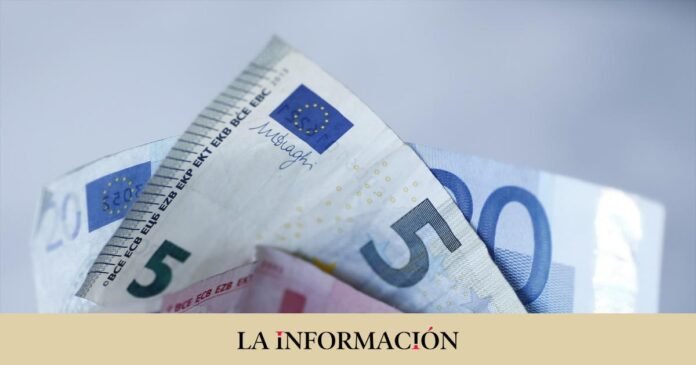Despite the good start of the markets in 2023, the deposit continues to be the star product for the most conservative investors. And this translates into the fact that the best products marketed by foreign banks suffer a flood of requests, which sometimes force them to withdraw them from their commercial offer once their acquisition objectives have been met or due to the impossibility of meeting their requests. Other entities, on the other hand, are committed to lowering the extra-typed interest they offer, and still continue to offer competitive deposits. And, in recent weeks, the deposit market has witnessed movements in both directions given the refusal of Spanish banks to remunerate theirs.
Thus, at the end of 2022, several entities raised the remuneration of their twelve-month fixed-term deposits to 3%, a return that had not been seen since the end of 2012, after the European Central Bank (ECB) set the rates interest rate at 2.5% and the deposit facility at 2% at its December meeting. Thus, PrivatBanka, from the Czech Republic, broke the market by raising the APR of its deposit to 3%. A product that could be contracted through the Raisin platform and from 10,000 euros and that has disappeared several weeks later. This same bank has also withdrawn its offer for a two-year term, which had a yield above 3.34%. The reason is that it has met its fundraising goals. BluOr Bank has also made the same decision. The Latvian bank no longer offers its 12-month deposit with a remuneration of 2.56%, although it maintains the 2-year one.
This is not to say that these products will disappear forever. As they remember from Raisin, the withdrawal of “products is a common practice by our partner banks. We regularly see their offers removed or replaced as part of the service they provide to customers.” An example would be Banca Progetto. The entity of Italian origin, which had also raised the yields of its fixed-term deposits for both one and two years, temporarily set aside the products due to the high volume of opening requests they had. Now, they have returned with the same interests as before the ‘impasse’, 3% at twelve months and an APR of 3.39% at 24 months.
Other entities, on the other hand, have chosen to reduce the remuneration they presented through these products. This is the case of the French Younited, which at the end of the year anticipated precisely the rate hike planned by the ECB and raised the remuneration of its five-year product to 3.43%, the highest in foreign banks to date. . Now, it continues to market this same deposit, but with a lower APR: 3.35%. Banca Sistema also followed this path and went from remunerating 3% for one year to offering 2.80% for one year. This practice is also extensible to deposits that can be contracted outside the platform. To give another example, the Facto Account, which is marketed by the Italian entity, Banca Farmafactoring, until recently offered returns of 2.52% on both its six-month and one-year deposits. Now, not only has interest been cut to 2.27%, but it has been cut in half for 3 months.
The key, the cost of financing
The reason why these entities offer a high remuneration is due to the financing needs they have. It should not be forgotten that the average deposit rate in Spain is 0.70% and one of the reasons given by Spanish banks for increasing this remuneration is precisely that they do not need to capture liabilities. On the other hand, these banks have more difficulties to obtain liquidity through issuances in the markets. And it is that the ECB is stopping buying both Spanish and Italian sovereign debt, the profitability of the paper and also of the risk premium of both countries is very different although it has evolved upwards.
Thus, the yield of the Spanish ten-year bond is 3.27%, while the Italian is almost one percentage point more, since it is trading at 4.24%. Regarding the profitability of the 10-year Czech bond, the country of origin of PrivatBanka, it is close to almost 5%. It is also necessary to take into account the nature of these entities, which are very focused on financing, so that in a context of economic slowdown, if they take out fewer loans, even if they are at higher rates, they cannot sustain high remuneration over time, which could affect to your income statement.

